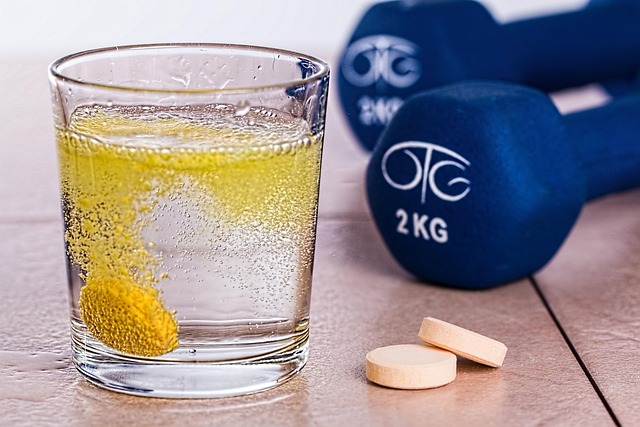Memory Loss Treatment: Enhancing Cognitive Health Through Diet and Lifestyle
Memory loss can be a concerning issue that affects many individuals as they age or experience certain health conditions. Fortunately, there are various approaches to treating and managing memory loss, with a focus on enhancing overall cognitive health. This article explores effective strategies for memory loss treatment, emphasizing the role of brain-healthy foods and lifestyle changes in supporting cognitive function.

-
Fatty fish (salmon, mackerel, sardines) high in omega-3 fatty acids
-
Berries (blueberries, strawberries, blackberries) packed with antioxidants
-
Leafy green vegetables (spinach, kale, collard greens) rich in vitamins and minerals
-
Nuts and seeds (walnuts, almonds, pumpkin seeds) containing healthy fats and vitamin E
-
Whole grains (quinoa, brown rice, oats) providing steady energy for the brain
Incorporating these foods into a balanced diet can help support memory function and overall cognitive health.
What lifestyle changes can improve memory and cognitive function?
In addition to a healthy diet, certain lifestyle modifications can significantly impact memory and cognitive function:
-
Regular exercise: Physical activity increases blood flow to the brain, promoting the growth of new brain cells and improving memory.
-
Adequate sleep: Getting 7-9 hours of quality sleep per night is essential for memory consolidation and overall brain health.
-
Stress management: Chronic stress can negatively affect memory. Techniques like meditation, deep breathing, and yoga can help reduce stress levels.
-
Mental stimulation: Engaging in activities that challenge the brain, such as puzzles, learning a new language, or playing a musical instrument, can help maintain cognitive function.
-
Social interaction: Maintaining strong social connections and engaging in regular social activities can help prevent cognitive decline and improve memory.
What are some effective memory-boosting exercises and techniques?
Incorporating specific memory exercises and techniques into daily routines can help improve cognitive function and memory retention:
-
Mnemonic devices: Using acronyms, rhymes, or visual associations to remember information.
-
Chunking: Grouping information into smaller, more manageable chunks for easier recall.
-
Spaced repetition: Reviewing information at increasing intervals to strengthen memory retention.
-
Mind mapping: Creating visual diagrams to organize and connect related concepts.
-
The method of loci: Associating information with specific locations in a familiar setting to aid recall.
Regular practice of these techniques can help enhance memory and cognitive performance over time.
Are there supplements that support brain health and memory?
While a balanced diet should be the primary source of nutrients, certain supplements may support brain health and memory function:
-
Omega-3 fatty acids (fish oil)
-
Vitamin B12
-
Vitamin D
-
Ginkgo biloba
-
Bacopa monnieri
| Supplement | Potential Benefits | Recommended Daily Dose |
|---|---|---|
| Omega-3 fatty acids | Supports brain cell structure and function | 1000-2000 mg |
| Vitamin B12 | Aids in nerve cell health and cognitive function | 2.4 mcg |
| Vitamin D | Supports brain health and cognitive performance | 600-800 IU |
| Ginkgo biloba | May improve memory and cognitive function | 120-240 mg |
| Bacopa monnieri | Potentially enhances memory and reduces anxiety | 300-450 mg |
Prices, rates, or cost estimates mentioned in this article are based on the latest available information but may change over time. Independent research is advised before making financial decisions.
It’s important to consult with a healthcare professional before starting any new supplement regimen, as some supplements may interact with medications or have side effects.
How can technology assist in memory loss treatment?
Advancements in technology have led to the development of various tools and applications that can aid in memory loss treatment:
-
Brain training apps: Platforms like Lumosity, CogniFit, and BrainHQ offer cognitive exercises designed to improve memory and other cognitive functions.
-
Reminder and organization apps: Applications such as Evernote, Todoist, and Google Keep can help individuals stay organized and remember important tasks or information.
-
Virtual reality (VR) therapy: VR experiences are being developed to help individuals with memory loss practice daily activities and improve cognitive function in a safe, controlled environment.
-
Wearable devices: Smartwatches and other wearable technologies can provide reminders, track health metrics, and even detect falls, supporting overall cognitive health and safety.
-
AI-powered assistants: Voice-activated assistants like Amazon’s Alexa or Google Home can help with daily reminders, scheduling, and accessing information quickly.
In conclusion, treating memory loss involves a multifaceted approach that combines a healthy diet, lifestyle modifications, cognitive exercises, and potentially supplements or technological aids. By adopting a comprehensive strategy that addresses various aspects of cognitive health, individuals can work towards improving their memory function and overall brain health. However, it’s crucial to consult with healthcare professionals for personalized advice and treatment plans, especially if experiencing significant memory issues or cognitive decline.
This article is for informational purposes only and should not be considered medical advice. Please consult a qualified healthcare professional for personalized guidance and treatment.






